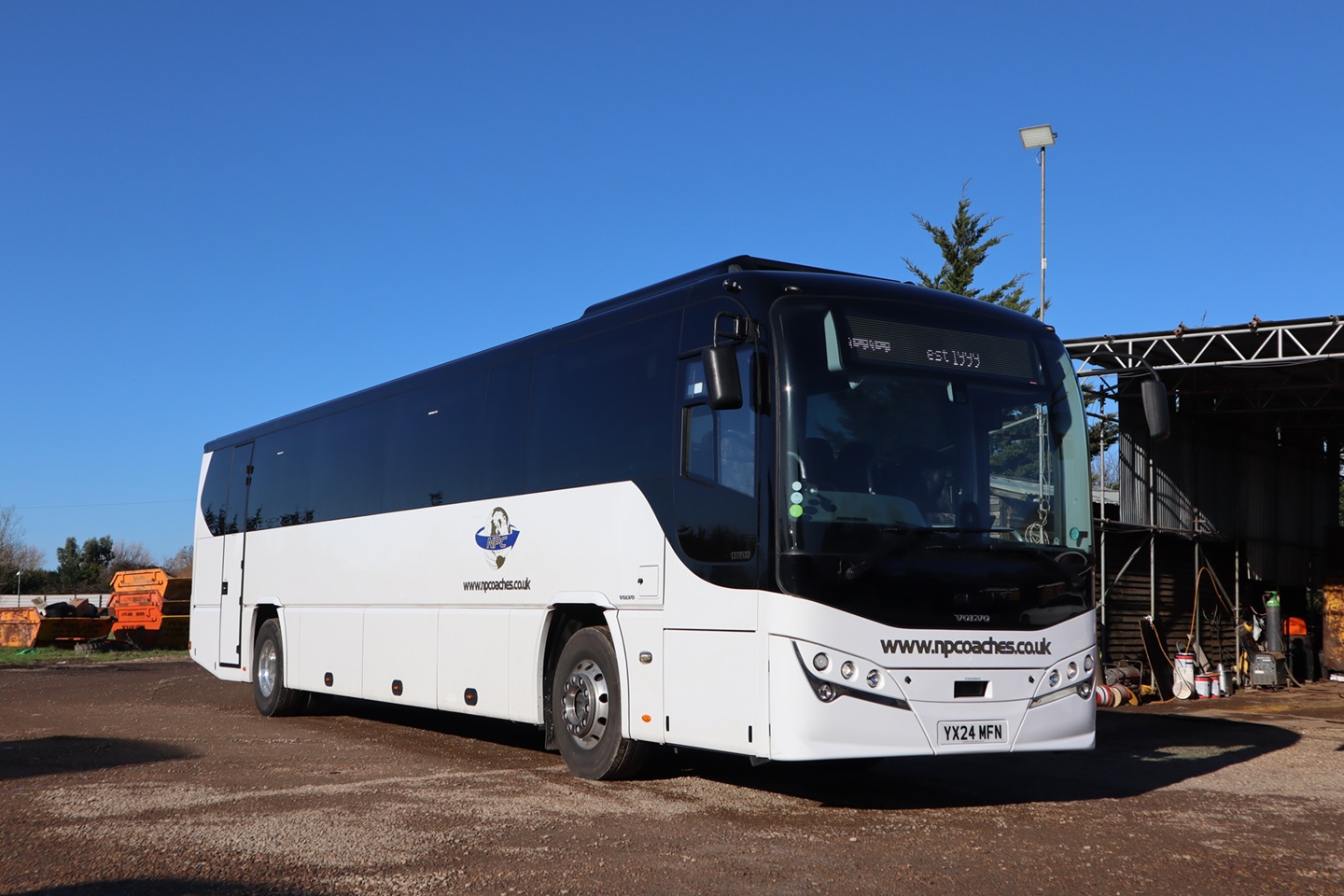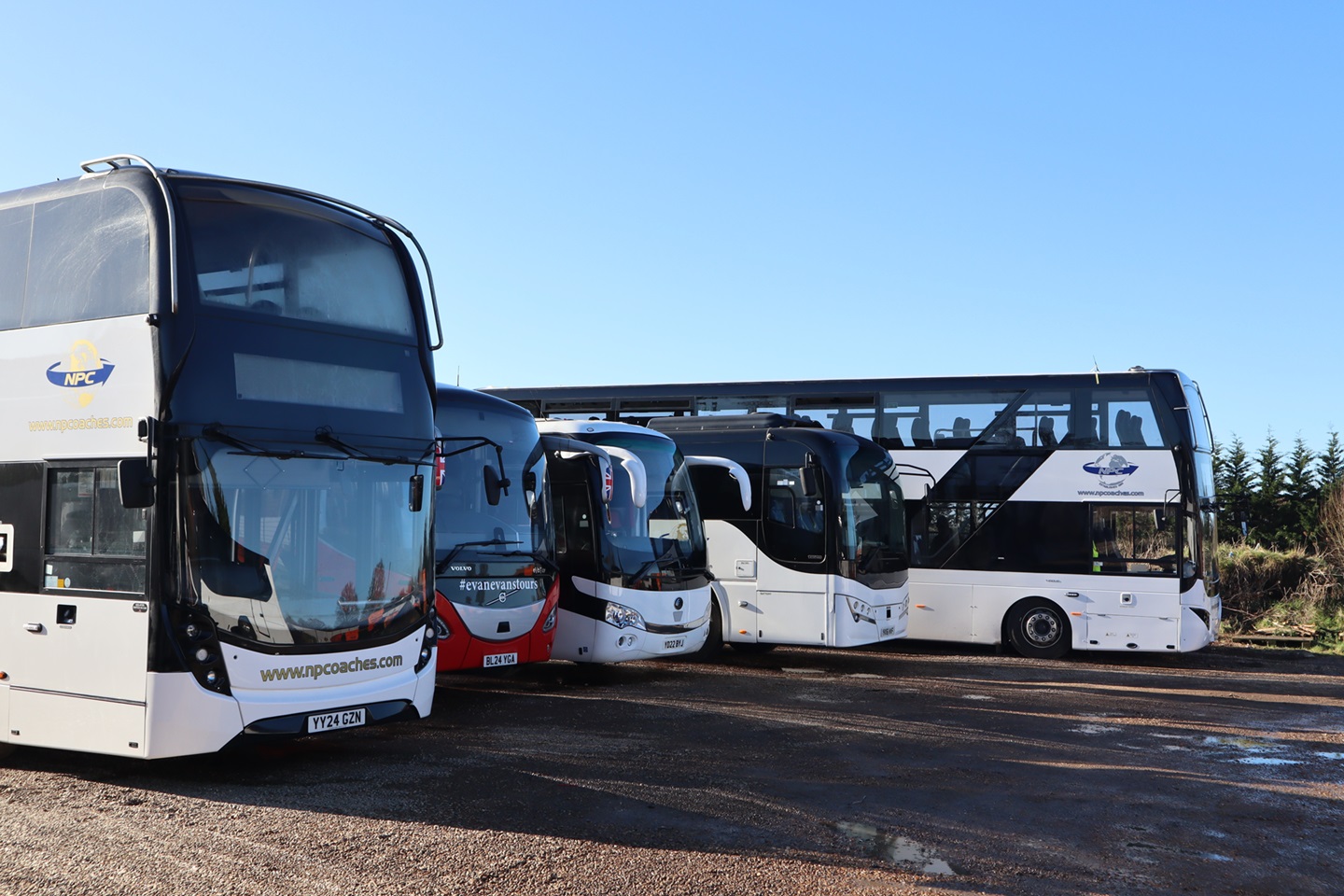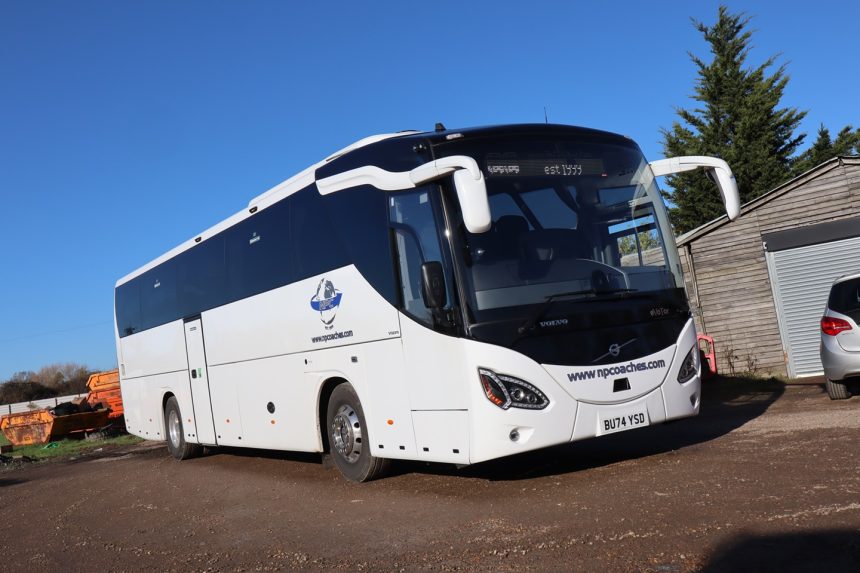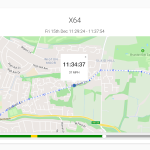The past five years have allowed many coach businesses to take stock, refocus and consider where the future lies. Among those is NP Coaches of Iver. Known more formally as New Punjab Coaches, change to the management team means that it is now made up of younger people with varied backgrounds, all hungry to build and improve.
Brothers Jujhaar Singh Brainch – who is Director and CEO – and Mandeep Singh Brainch – who is Compliance and Operations Manager – have taken on the company from their father, who founded it in the 1990s. Business began primarily with a scheduled service between Southall and the Midlands and thence Yorkshire in partnership with another operator.
“There would be work around that such as weddings, local private hire and such, but the scheduled service was where it began for us,” says Jujhaar. Word of mouth helped growth, and the business expanded into the tourism area, including for incoming groups.
Perhaps a big break came with diversification into the home-to-school market, which Jujhaar credits to the relationship with another operator. NP Coaches is now strong in that field and delivers services for both the local authority and private establishments. It has 20 vehicles, all of which are modern; Euro VI is ubiquitous, and PSVAR compliance is prominent.
Majoring on quality of service is key for NP Coaches
The focus on quality washes through across the piece. For private hires and tours, price is not the defining factor. “We are built around the product and the service,” says Customer Relations Manager and Transport Manager Sarb S Kang.
For private schools, work in collaboration with ShuttleID has seen app deployment where students scan their pass when boarding. Tracking is provided and parents can see where the vehicle is. If a delay occurs, messaging is shared.
“There is definite value in this approach,” says Mandeep. He believes that schools are rapidly increasing the importance placed on safeguarding and that it is incumbent for transport providers to do the same. Those that show they take safeguarding seriously will see a benefit, he continues. The operator has also invested in its own back-office safeguarding training.

On other work, it remains the case that where services are delivered to a high standard, customers are willing to pay the necessary sum. But as with some other operators, Jujhaar notes that the trajectory of rates in recent years may have started to flatten.
“I see rates stabilising,” he explains. “There was a big spike, and while they are not falling back to where they were previously, the growth we witnessed may have tailed off.” Supply and demand could be an influence there as more operators come into the market, although for NP Coaches the period of strong numbers served it well, with proceeds put back into the business.
Rethinking staff recruitment is bringing benefits
Being close to Heathrow Airport means that the employment market is competitive. Opportunities for drivers and engineers are legion, and it is incumbent on a business to make itself attractive in those fields.
Some drivers employed by NP Coaches have moved from Transport for London ‘red bus’ operators. While vehicle handling skills are largely the same, Mandeep explains that there remains a big piece of training to do when they make the shift to coach.
“Hours legislation and the like is different, as is the customer aspect, but what we really look at in the candidate is them as a person. We have a good working environment here and it can take only one bad apple to ruin that.
“Our hiring process is vigorous and in two stages,” he adds; practical skills behind the wheel and knowledge of vehicle checks and hours rules sit alongside questions around the ‘soft’ aspect of coach driving that relates to customers.
But that is not the be-all and end-all. “I say to applicants that if I can work with them, I will do so. The main thing is for the person to always be willing to learn. None of us know everything; this industry changes so quickly that we are always learning.”
In a nutshell, NP Coaches believes that the right person can be taught to be a good coach driver. “It is a long process, but it is worth it at the end,” says Jujhaar. The operator has seen more younger people looking for work in the sector, with two aged under-30 having applied in recent months. It is currently considering whether to start training new drivers to category D standard.

Grown-up conversations with staff
Once recruited, retaining staff is equally important. Mandeep notes how employees feeling that they are a number on a payroll is an unhealthy position for them and the business. A quarterly bonus scheme is in place built around drivers’ KPIs.
15 items are part of that, and it represents a shift in mindset. “We thought: ‘Why would we punish staff for not doing what they should? Let’s try rewarding them for doing things right,” he continues. “We got a much better response.”
An element of friendly competition among drivers has surfaced with that approach, but the way in which performance is discussed with them has also changed. “It is about accountability and letting people know where they stand,” says Company Secretary Sanya Bhasin.
“Every driver sees their performance chart. We ask them what their struggles were through the period in question and what we can do to help. We have seen improvements through that; it is much easier to have these conversations when everything is put in front of a driver and discussed in an adult manner.”
Mandeep adds that such a shift runs through the operator. “Our culture is now that we will say: ‘This is wrong. How can we work to improve it?’. It is no longer a finger-pointing game.”
Digitalising engineering functions proves worthwhile
On the engineering side, two experienced staff from Ukraine have been recruited. Work on garage facilities is underway alongside a move to digitalisation, with Truckfile in use. Garage jobs are issued via that platform and details of work carried out are recorded in the same way, with digital images utilised.
A picture of vehicles is thus created, including identification of those that cost more to run than others. Investment in both coaches and buses has been strong since the pandemic period; stock was rented after restrictions were eased, and extended lead times in some areas remain a concern to the business.
Buses are high-capacity models, including a 98-seat MCV EvoSeti-bodied Volvo B8L double-decker. For coaches, the B8R with Evotor bodywork is favoured, although other types are in the fleet. The Yutong TC9 is represented among smaller vehicles.

Service quality over growth the focus for 2025
Not overstretching itself is key to the agenda for NP Coaches. Jujhaar notes that 2025 will likely see a period of stabilisation. “The key is our workforce,” he notes. “If we have the right people to take on more work, we will. If we cannot assure the quality of service, then we will stay as we are.”
A variety of backstories within the management team and an ability to bring those together to benefit the operation is nevertheless seen as a positive by the operator. “Each of us has our own five-year plan, and in our respective facet of the business, we know what we want to do,” continues Mandeep.
Possible airside work at Heathrow is among that pool of potential opportunities, although delivering on it is a long-term strategy. Expansion of the existing scheduled coach work could also happen.
But with a modern fleet, investment in facilities underway and an approach to staff that has paid dividends, there is no imperative to grow for growth’s sake. Taking what there is already and working hard to do it even better is a longstanding recipe for business success, and it is one that looks set to deliver for NP Coaches.



























